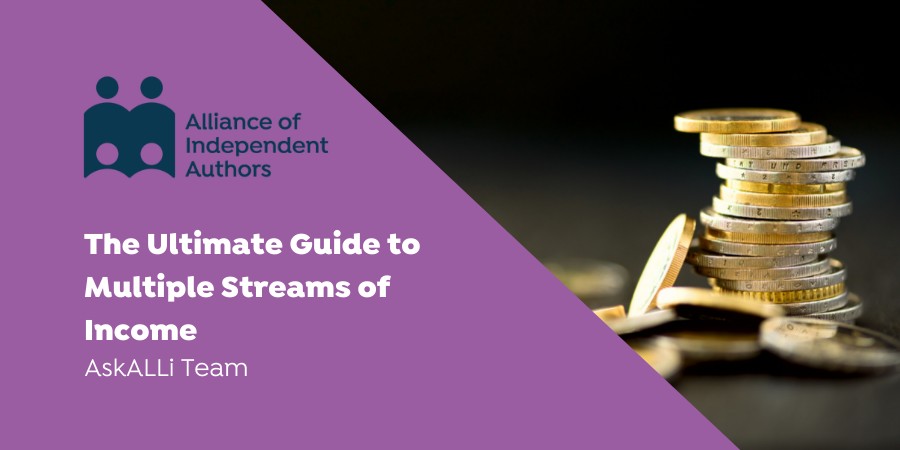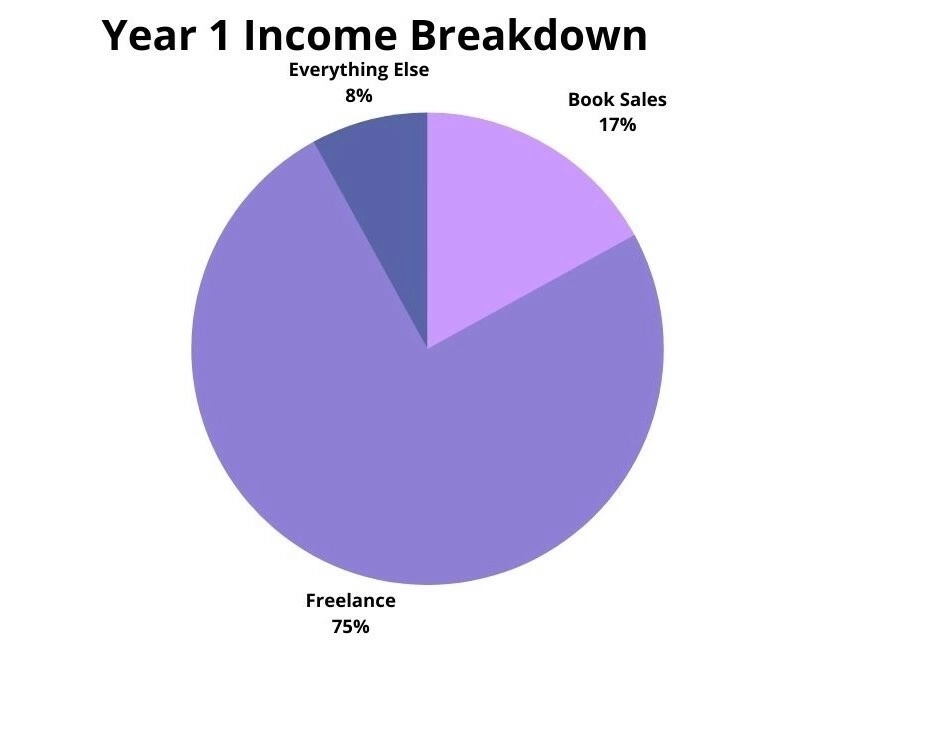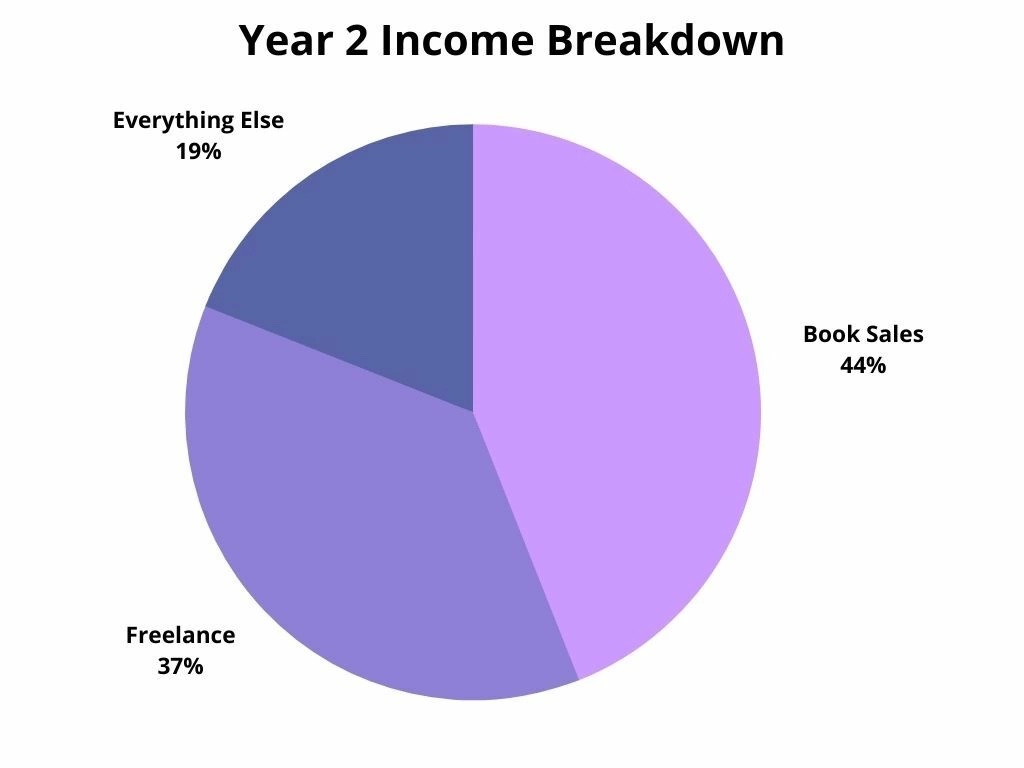“Multiple streams of income” is more than a buzzword. It's a business model, it's a mindset and it's the best way to ensure a sustainable income from your writing and publishing. Today, the AskALLi team dives deep into the topic. Blog editor Sacha Black provides her own experience as a case study and other ALLi members also weigh in. This is the Alliance of Independent Authors‘ ultimate guide to multiple streams of income.
What Are Multiple Streams of Income for Authors?
Multiple streams of income sees money from more than one source flowing into your bank each day, week, month or year.
This is not “going wide”, having income from multiple formats (print, ebook, audio) and platforms (Amazon, Apple, Kobo et al.). However wide you go, this income has a single source: your book.
Multiple streams of income come from different product types for authors. For example:
- Books (all formats)
- Patreon or other patron service
- Membership subscriptions
- Merchandise
- Sponsorship
- Advertising on your website or in your books
- Speaking or performance
- Affiliate income
- Courses
- Consulting
- Rights sales and licensing
- Crowdfunding
- Writing or publishing services
Authors may also, of course, have non-writing related income like day-jobs, side-hustles, investments, spouse or family income. These are not the concern of this post, which focuses on income from writing and publishing.
Why Bother with Multiple Streams of Income?
Lots of authors say they “just want to write” but there is great danger in this mindset, as it is an impossible goal for most authors. A better goal is to set up income streams that don't require vast amounts of your time to manage.

Sacha Black, ALLi Blog Editor, is a typical multiple streams of income case study
ALLi's Blog Manager Sacha Black is a perfect case study for the value of multiple streams of income.
“I used to work as a project manager, and I lived in a property that was owned by my employer. During the last two years of being employed before I went full-time, I was under risk of redundancy four times. If I'd been made redundant, not only would I have lost my income, I'd have lost my house as well. I was completely beholden to them and felt like I couldn't leave. From that moment on, I swore I'd never let anyone have that much control over my freedom.
What does this have to do with you and your writing? When you only want your income to come from one source, i.e. your book royalties, you're putting yourself in financial jeopardy.
If you only receive income from book royalties, you're in no different a situation than I was working in project management. Too many authors have had their accounts closed by big distributors for indies not to pay attention to what can happen.”
Book income is volatile. Algorithms alter, often, and as well as the vagaries of self-publishing platforms, there are many reasons a book can stop selling. Reader tastes can change. Ads can stop working. A world event can change everything.
Having multiple streams of income means you are not in an all-or-nothing situation. You're in a better situation to weather storms.
Two Types of Income: Active and Passive
For the purposes of argument, we're going to split income into two types: passive and active. Active income is where you exchange time for money and you only get paid once. Examples are consulting work, paid by the job writing, or speaking.
Anything that you create once and can sell over and over, like books and digital courses, generates passive income.
Teaching a university class that you get paid for by the hour is active. Recording and uploading the same course to an online courses portal for payment each time the course sells is passive.
Many people argue that there's no true form of passive income. You must do some work initially in order to create whatever it is you are going to sell. And products may well require some level of maintenance, or regular updating, too.
When you want to make a living from your writing, you need to balance active income and passive income.
The more active work you do, the less time you have for writing. You've spent your time earning once instead of creating something that will pay you again and again.
That said, having the option to do active income work for those months perhaps where you're not launching or seeing lower book sales, means you can bring in cash immediately.
The downside is, that's cash you only receive once, and so Like with all things in life, striking a balance is key. Many authors take on active income generating work until their passive income shows some stability.
Three years on from when she first went full-time as an author-publisher, Sacha Black recalls how appreciating the difference between active and passive income was a key moment.
When I first left my day job, year one was all about survival. I didn't care how, but I had to survive, so I didn't have to return to a day job I hated.
While this gave me huge drive, I can see now that I was making decisions from a fear-based mindset, instead of empowered confidence and the belief that I could make it. I think this is something most of us go through at the start. It's big and scary and we have bills to pay. Without the experience of ‘having survived', it's hard to believe you can.
After about six months of working for myself, I realised I'd barely written any words, not because I didn't want to, but because I was doing so much ‘active' income work, short injections of cash to guarantee I'd pay my bills, instead of the slower but more stable, long-term work—writing and publishing books.
It took a few months from this realization, but I reduced my freelance active work to just one remaining client—ALLi. This has given me back so much time to write.
I don't regret taking on lots of freelance at the start, it gave me the reassurance to know I could pay my bills when I wasn't yet confident enough.
Another consideration is the type of work. If, for example, you're trained as an editor, but you're also a writer, then editing other people's work is going to take a toll on the amount of creative energy you have left in reserve for your own work.
When creating or choosing types of work and income streams, don't forget to consider the wider impact on you, not just your time. Time drains are more than just physical hours on a clock.
Keep Cash Flow Flowing
In business, cash flow is always crucial, but publishing income is not consistent. In a month when we launch, or have a sale, income bumps up. Another month, when the sparkle of shiny new books has dimmed, and you're still months away from finishing the next book, the income drops down.
Multiple streams of income can even out the flow. You can have a more consistent income from patronage, sponsorship, or membership. If you offer other products, such as courses and merchandise, you can run sales or promotions on those products between book launches.
Sacha Black:
I felt frustrated for a really long time hearing that ‘backlist is queen' or that you needed to run sales or promotions or whatever else to generate cash. When you're starting out, those things are hard because you only have one course, one book, one product. There's only so many times you can run a sale on the same product. If you don't have other options, you can quickly burn out your audience.
It's different for everyone, depending on which income streams you have and how big your audience is, but there comes a point where you have enough products to rotate sales and promotions, and everything changes. You're not making pennies any more on your sales, but hundreds or thousands of pounds.
From Income Stream to Business Model
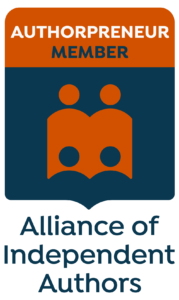 When you find a balance of income streams that works for you over time, it solidifies into your business model.
When you find a balance of income streams that works for you over time, it solidifies into your business model.
ALLi has defined the ten business models working now as:
- Book Sales Only, One Outlet
- Book Sales Only, Wide
- Book Sales Plus Speaking / Performance
- Book Sales Plus Teaching
- Book Sales Plus Affiliate Income
- Book Sales Plus Short-form Publication
- Book Sales Plus Reader Membership / Subscription
- Book Sales Plus Influencer Income
- Book Sales Plus Patronage
- Book Sales Plus Rights Licensing
- Combination Model
ALLi's Authorpreneur Membership is for writers who have sold more than 50,000 books in the past two years, or business equivalent. Many of our Authorpreneur Members operate Number 11: the combination model of multiple streams of income.
If you'd like a more in-depth look at the business models, you see our guide here.
The Art of Patience
Success in any business takes time. Success in creative business arguably takes longer (outliers excepted). You are not just aiming for profits, you're aiming to satisfy your creative passions too. Indie authors can also suffer from not fully understanding that they are in business.
Most creative businesses fail because the creative in charge got tired, or bored, or distracted. Authors are no exception.
Sacha Black:
I'm not a patient person. I don't like waiting, I don't like queuing, I really hate waiting for growth. But unfortunately, that really is how business grows. There's the famous saying ‘behind every overnight success is ten years of work'. I don't like it, but it's true. I'm approaching the end of my third year in business, and I can see the change in finances, the growth and expansion, and the shift in where the percentages lie.
Between year one and year two, I more or less halved my reliance on freelance income. I'm almost at the end of year three and while I haven't finalised the numbers yet, I've run enough to know there's been another considerable drop in the amount of income that freelance accounts for.
Time, guys. It counts. Just keeping on keeping on means your audience grows, your social proof grows, your backlist grows, your reputation grows. All of this means word spreads and slowly, slowly, your income creeps up.
What I can say is that although over the course of my year there are peaks, troughs and plateaus, when I compare income over longer periods of time, the trajectory is always up.
Time. It counts.
ALLi Member Experiences with Multiple Streams of Income
We asked ALLi members about their multiple streams of income. We asked two questions:
- What are your most successful streams of income
- Have you learned any lessons about income streams?
Jessica Bell
“My book cover design business, Jessica Bell Design, and my publishing company, Vine Leaves Press. (jessicabelldesign.com + vineleavespress.com)
Create separate bank accounts for each income stream, and also separate the bookkeeping so that you can analyze the financial data of each and make improvements as you go along. Invest in a good accountant! Wise and Revolut (online banks) have been fundamental in keeping my finances in order, too. If possible, pay yourself a fixed salary, so that you know how much money you have to invest in improving your businesses.”
Kevin Partner
“By creating a web design business for authors, I was able to support myself and my family while I also worked on my writing. At the beginning (2017), 90% of my income came from building websites, now 90% comes from writing books. I chose web design because I've been building websites and web apps professionally for [cough] over twenty years so, though I had to spend time learning the right tools and techniques for authors, I was 90% qualified already.
The main lesson I learned was to always remember my ultimate goal -to earn a full-time income from writing. This was very, very tough at the beginning because building sites took up most of my working day so I was working very long hours to fit in writing. But it did the trick and, over the following couple of years I changed the balance so that I now work fewer hours for more income.
The other thing is that I chose something I actively like doing. As I said, I've been building websites for a long time because I love it and am still heavily involved in testing out the newest methods (eg building WordPress sites using only the block editor rather than, say, Divi or Elementor). If I'd chosen something I didn't enjoy, it would be like having a regular job again.”
Helen Baggott
“I view my non-fiction books as being a part of my business.1. Selling articles based on the original research provides an income stream that, with licensing fees, lasts for several years. Offering talks, at the moment via Zoom, has been very lucrative and most months I give six or more talks.2. I’ve learned that reaching out to groups for talks might not guarantee book sales, but it does help with exposure. I use SpeakerNet.co.uk to list my talks.”
Debbie Young
“My most successful extra streams of income besides my fiction writing are freelance journalism and teaching, based on my knowledge and experience of self-publishing.Chief lesson learned: Don't be afraid to ask for fair payment for talks, articles, etc. If someone has asked you to write or speak for them, it's because they recognise you are valuable, so extract your rightful dues!And hang on to your copyright – so much can be repurposed to generate further income streams after its first publication, so only ever license non-exclusive rights. It shouldn't need to be said, but always read contracts before signing, and don't sign anything you don't understand.”
Cindy Rinaman Marsch
“1. Editing (developmental, copyediting)–I'm an ALLi Partner Member and have been since I first dipped a toe into writing after decades teaching. I realized my editing services could help other ALLi members!2. My editing pays the bills for my writing, which at best breaks even, because I'd rather spend my time editing for excellent revenue than marketing the books. My writing improves my editing and creates a connection point for my clients, and my editing surely improves my writing–I'm learning all the time!”
Wendy H. Jones
“I run an online academy about the business of writing, online marketing courses, coach writing and marketing and also get quite a good income from speaking at conferences and events online, nationally and internationally. I believe a writer is worthy of their hire and asking a fair price for anything you do is important otherwise it has no value.”
Kristina Proffitt
“I also write content for businesses, and I really like that retainer clients are much more stable than book income, and that it offers me a break from writing what can be quite emotional stories. I've come to realise I'm just not the kind of person who can write/edit/work on a book all day, every day. I need time away from that while also still having money coming in, and my content marketing allows me to do that while also only working part time so that I can rest when my health requires me to.”
Susan Papas
“I'm hardly entitled to write here in answer to your question as I'm still several months away from publishing my first novel and have therefore earned nothing yet from possible sales — but what has supported me over the last ten years and earned me time to write that novel, is my work as a freelance literary translator. Apart from being work that I love, it enables me constantly to flex my writing skills in translating ‘voices' very different from my own. As yet this is my only ‘stream', and will no doubt continue to be so while I write my second novel. The main challenge is balancing time for my own writing with meeting deadlines for other authors — time management is of vital importance.”
Dawn Brookes
“My most successful stream of income is by far writing cozy mystery books… [and then] teaching. I've been running courses on self-publishing for the local arts centre, teaching when invited at the university, and for writing schools/studios… I would recommend building good local networks, attending arts events and not being afraid to promote other authors work. There's room for everyone in the indie world. Give and you shall receive is my motto, although I stole that from a well known book!”
Geraldine Byrne
“I am obsessed with small revenue streams 🙂 I write fiction and non-fiction; I teach; I write life ceremonies and vows; and I have a small etsy based creative business. I retired last Oct, small revenue streams enable this. I find lots of people think they can start 2-3 things at once, then get overwhelmed. I started five years ago, slowly building one stream then another.How many streams are too many? You have to be disciplined, dividing time between each project. Also the aim is to have at least several streams pulling in regular income without requiring constant attention. It's a learning curve but once you get it right, it's the way to go.”
JJ Toner
“50/50 ebook sales / editing revenue, drifting toward 40/60, probably because I haven't launched a new book since May 2021. I forgot audio books – probably equivalent to editing revenue.”
Melissa Addey
“Grants, especially when you're new and don't have a lot of books. I got £75,000 in 5 years as a newbie writer (including a paid-for PhD): it was very important protected writing time and also allowed me to work with some big names which made my writing CV look a lot stronger. Many writers don't realise how many interesting grants exist out there: they are available for travel, qualifications, creating public art, and much more. Worth learning how to write bids and keep your writing CV up to date!”
Multiple Streams of Income: Other Resources
Sacha Black and Adam Croft ran a beginner self-publishing salon podcast on multiple streams of income, which you can listen to or read here.
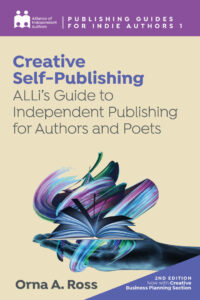 Creative Self-Publishing is a comprehensive guide to every step in the publishing process, written by ALLi Director Orna Ross, drawing on the experience of thousands of members, from those who are just starting out to those who are staggeringly successful.
Creative Self-Publishing is a comprehensive guide to every step in the publishing process, written by ALLi Director Orna Ross, drawing on the experience of thousands of members, from those who are just starting out to those who are staggeringly successful.
ALLi members can download a free copy of the Creative Self-Publishing by logging into allianceofindependentauthors.org and navigating to PUBLICATIONS > GUIDEBOOKS. If you’re not a member, you can download a copy in our bookshop here.
You can also learn more about the creator economy, what it means, and how you can become part of it to build a healthy and sustainable business here.

